“No single piece of a meme is a masterpiece”
Interview with Cem A. aka @freeze_magazine
I lost useful hours to this meme page laying on my sofa scrolling through all the witty memes about the contemporary art market and art theory. Besides being a big fan I wanted to figure out the motivation and drive behind the two-year-long activity that created 1340 posts so far—all of them focusing on daily happenings and existential questions in the art world.
You created a fairly successful page that publishes witty memes reflecting on the art world. What made you choose this form of art and institutional critique?
I don’t have a very romantic answer to this question. I have written essays and done some academic research on institute critique before which is sort of a coincidence but in some way related to @freeze_magazine. But my intention to make memes wasn’t like: “I want to do something that targets the gap between internet culture and institute critique”. It happened naturally and with the input of a lot of people—I think what’s nice about memes is that they don’t work if people aren’t interested in them.
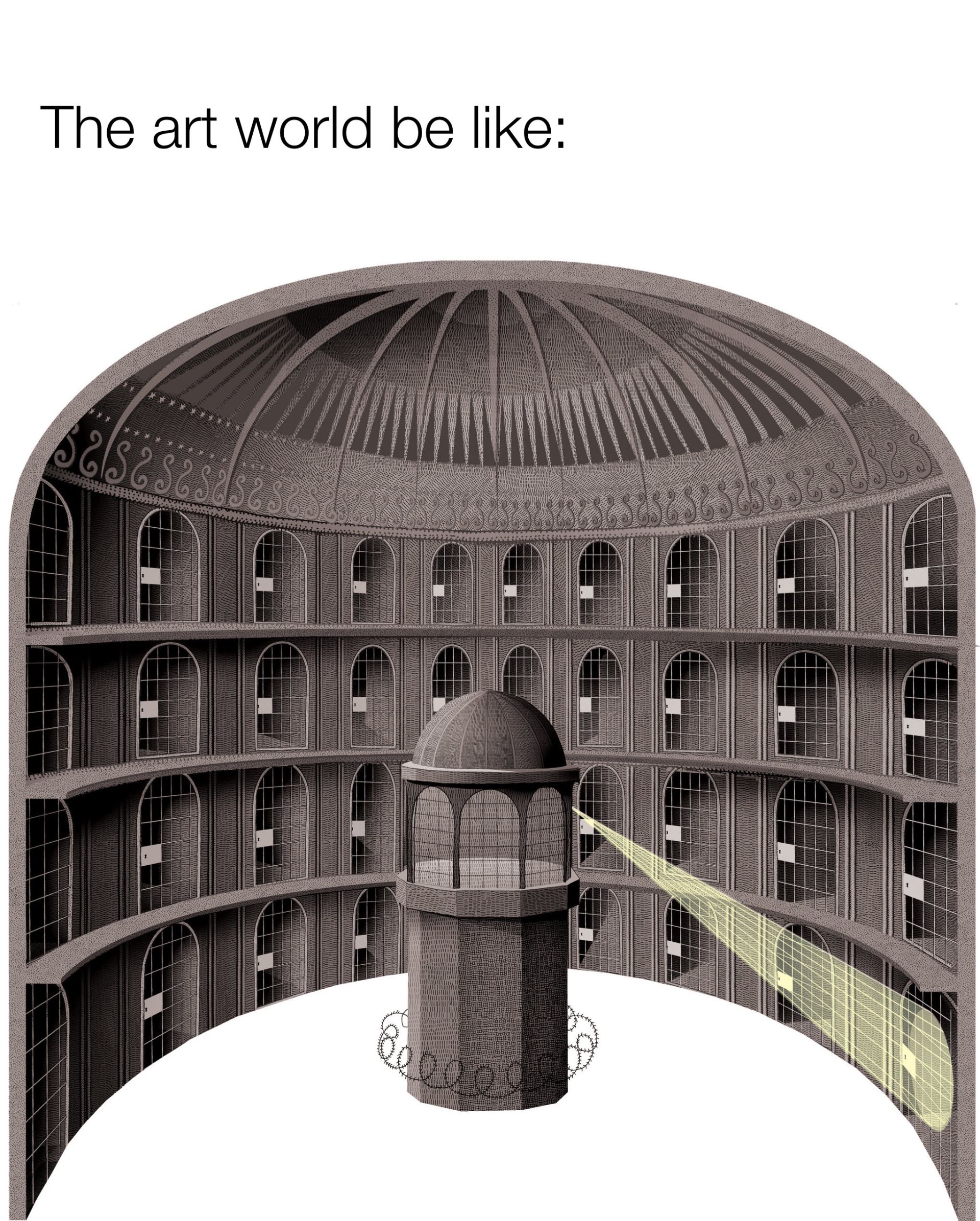
Is meme culture part of your generational interest or did you choose this format because it seemed approachable?
It’s a bit of both. I’m in my mid-twenties so I guess meme culture is part of my general digest, but I wasn’t particularly into memes before this page. Initially, @freeze_magazine was a project where I could procrastinate and just make memes with friends. Two years ago when I started this page there weren’t many meme accounts targeting the art world—and as that content didn’t exist before, it felt especially interesting.
Why do you think your page became so popular? I mean anyone following the art news could have seen your page at some point. What was the point where more and more people started to follow you? Was there a particular meme you created or is it just how the internet works?
First of all, I am humbled by hearing people see this the way you have just described it. Even if it sounds boring, to me the main goal is to keep the page consistent. There are other hilarious meme pages, but people never post really consistently—or post only for a couple of months and then quit, or post ten memes one day and then leave again for two months.
I wanted to post a meme every day—which I have been doing for the last two years. I missed only two or three days here and there. It created a daily habit, it challenged me and that helped me become more productive. Also, I think it created a more constant relationship with my followers. I could say that this is the main factor that made a difference.
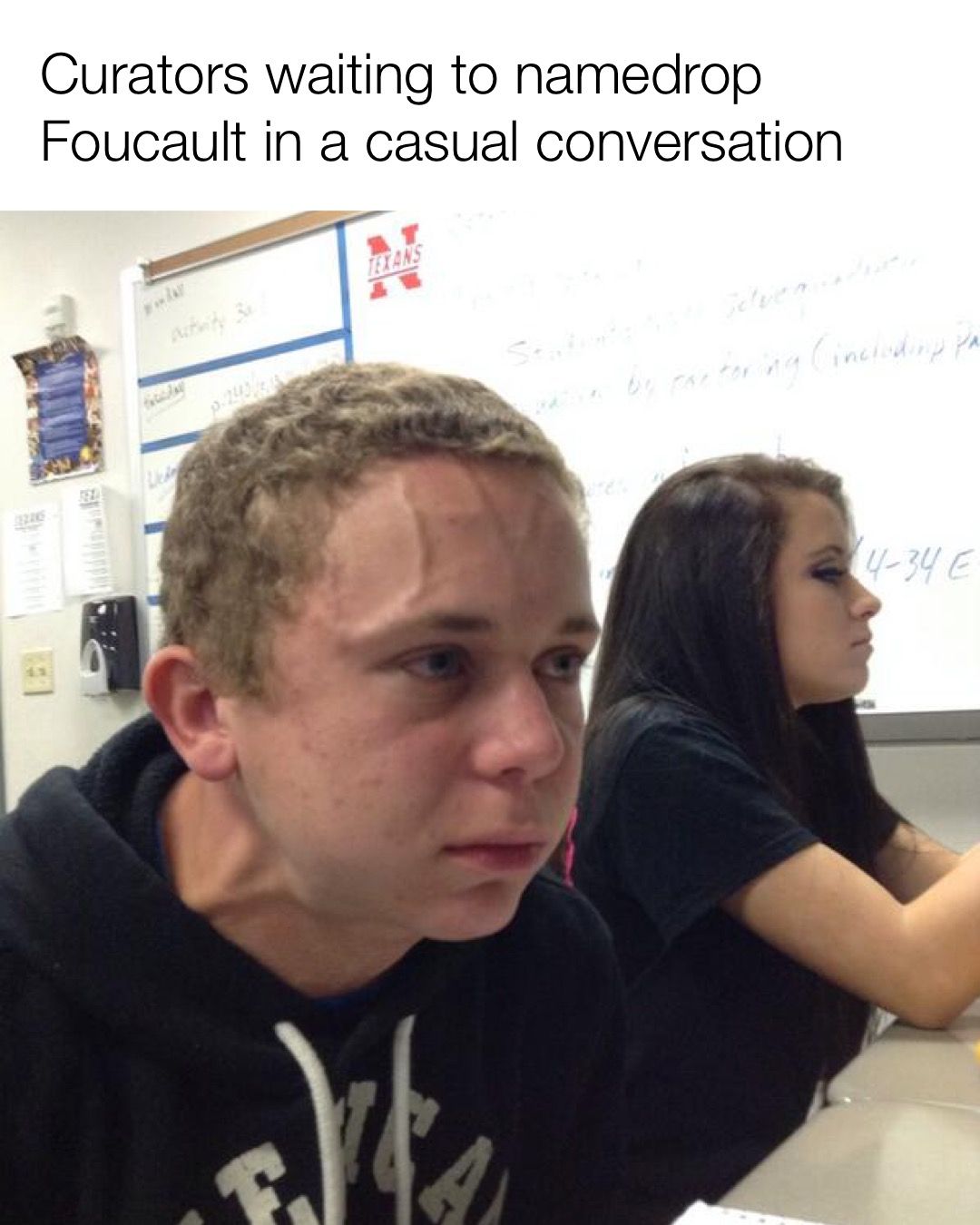
@freeze_magazine’s critical thinking is a breath of fresh air to me. You would have to be quite up to date regarding the art world’s news and would have to have knowledge in art theory to be able to authentically represent these critical ideas. You already told me a bit about your background—is there anything you can share to help our readers understand your background while maintaining your almost anonymity?
Of course. I went to an art school but I didn’t study fine art. I was studying art, but have never made art myself—until last summer when I had my first exhibition titled The Party at Weserhalle in Berlin. While my practice is happening it feels more accidental, but looking back at it now there are actual tendencies and themes that I go back to from time to time. This week I was giving lectures at the Royal College of Art in London. This was the first time I had tried to summarize a grand theory about what I am doing. I don’t think memes are revolutionary, I think they are more reformists. I don’t think they could really lead to target action on the day they are posted. I think it is more about your constant exposure to memes that can help you shape new ideas, become more critical and accountable and be less afraid to tell your own opinion. It is more about shifting public opinion in the right direction. This is a very intangible, invisible process.
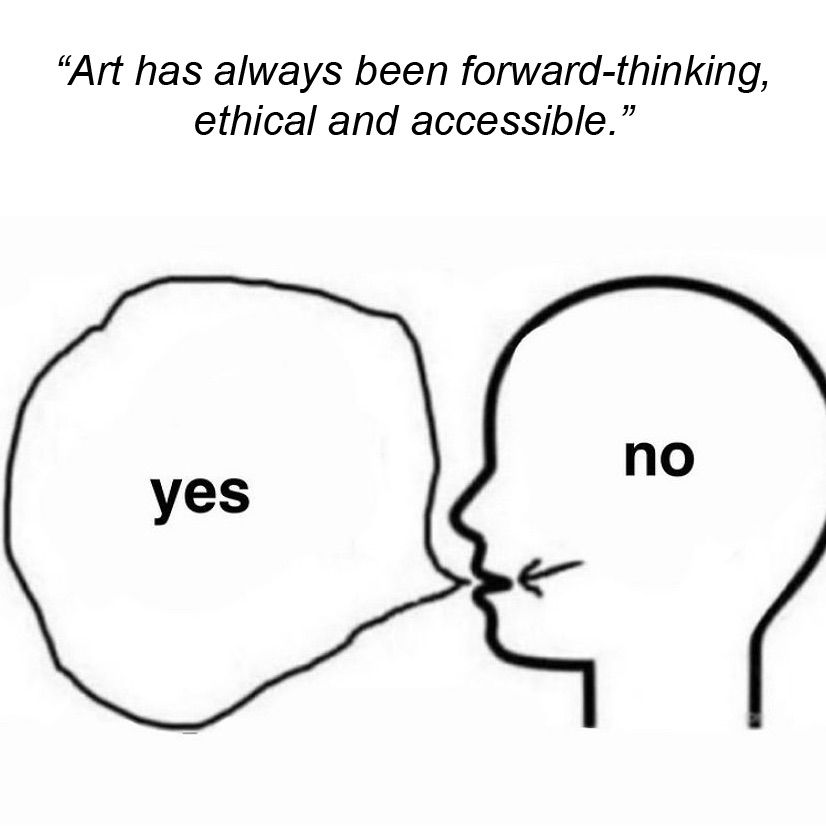
Being exposed to ideas leads to shifted conversations—in my opinion books do and did the same if people paid the right amount and kind of attention to them.
I think in a way books are a similar product of a different form of mass media technology: printing. Of course, I think they share similarities with memes: it is all about sharing your opinion, shaping and contributing to the public opinion in some way. In that way, internet memes are definitely a continuation of the same process that has started with books before.
That is exactly what I was trying to explain in my lectures at the Royal College of Art. I called this meme-thinking. This is a made-up name that doesn’t have any scientific backing, but I think meme-thinking exists in different forms. It’s about popularising forward-thinking opinions, and that can take a lot of shapes. It can be a short witty book as well that changes your opinion. And that could be seen as a meme as well in some way.
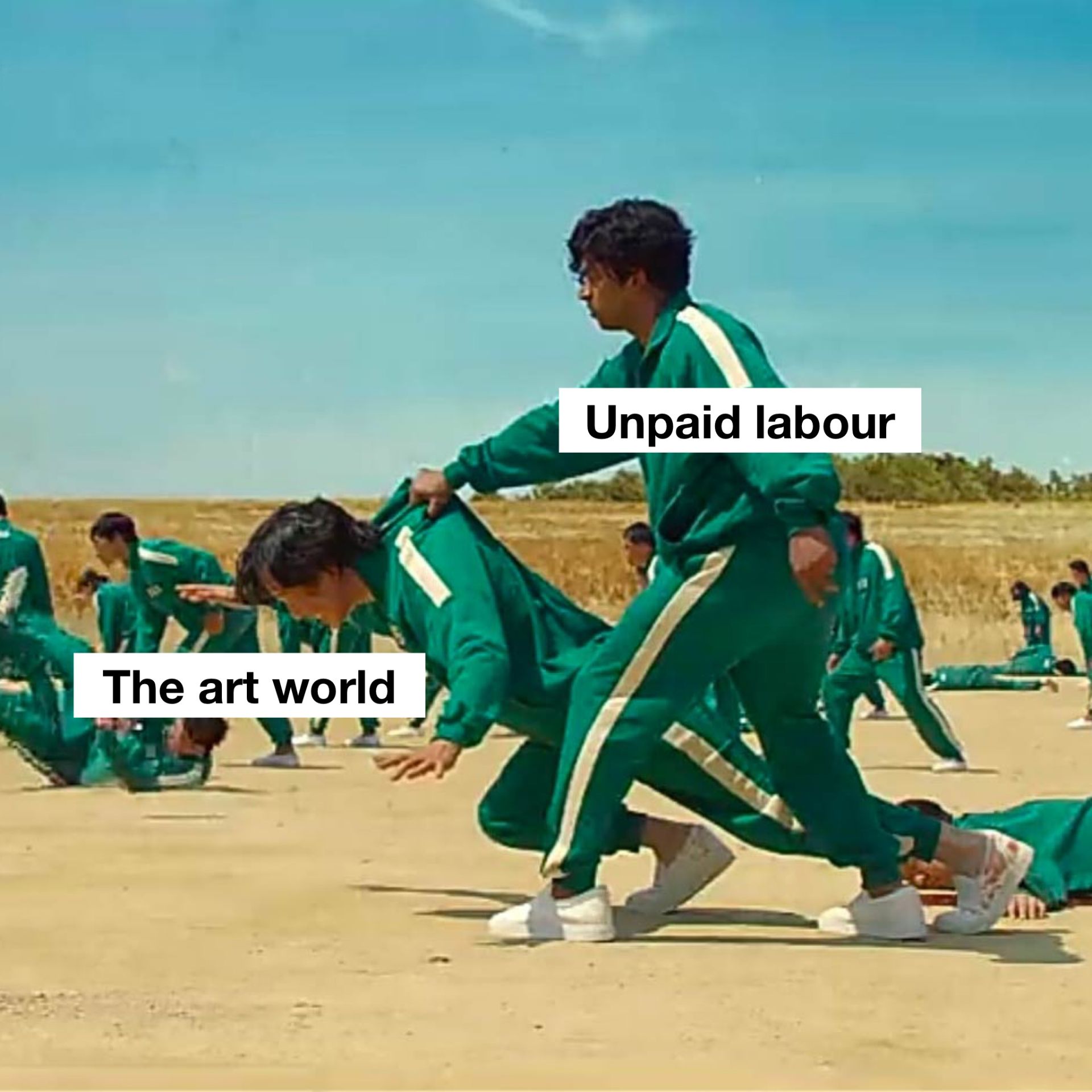
The “is this art” question always pops up and it is a never-ending quarrel. To me your whole Instagram page reads as some text-based artwork because I can see the aim and see how you follow up on the ideas—but do you consider these artworks yourself?
I think that is a funny paradox. If you think about this, then you can describe them both as artworks, or due to the fact that I’ve been doing this for more than two years as a performance, or you could compare the memes to On Kawara, or it could be that I’m exhibiting every day. If you tried to apply these physical concepts, it could work on my memes in a lot of ways. I think what’s important about memes is that they exist in proximity to each other and that is why I am making them every day. No single piece of a meme is a masterpiece. No single meme is very important, they share this collective significance and that is something we don’t really see in the physical art world or the academy. The problem with academic writing is that the information in there is stated accessible—but it is only technically accessible. Most of the time people do not really access that information as much as they should.
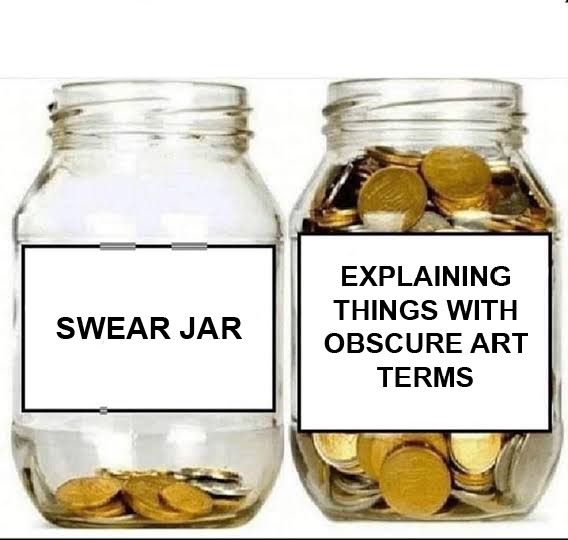
This is a problem. This is the result of not the ideas themselves, but how they are delivered. Limiting sharing the ideas to long forms of writing is one way to share, but we should look for different alternatives, and memes can definitely help in this case. As a personal challenge, I like reading theoretical texts and then trying to make a meme that can describe that theory I have just read. I like to think that you could portray a theory in just one meme as well.
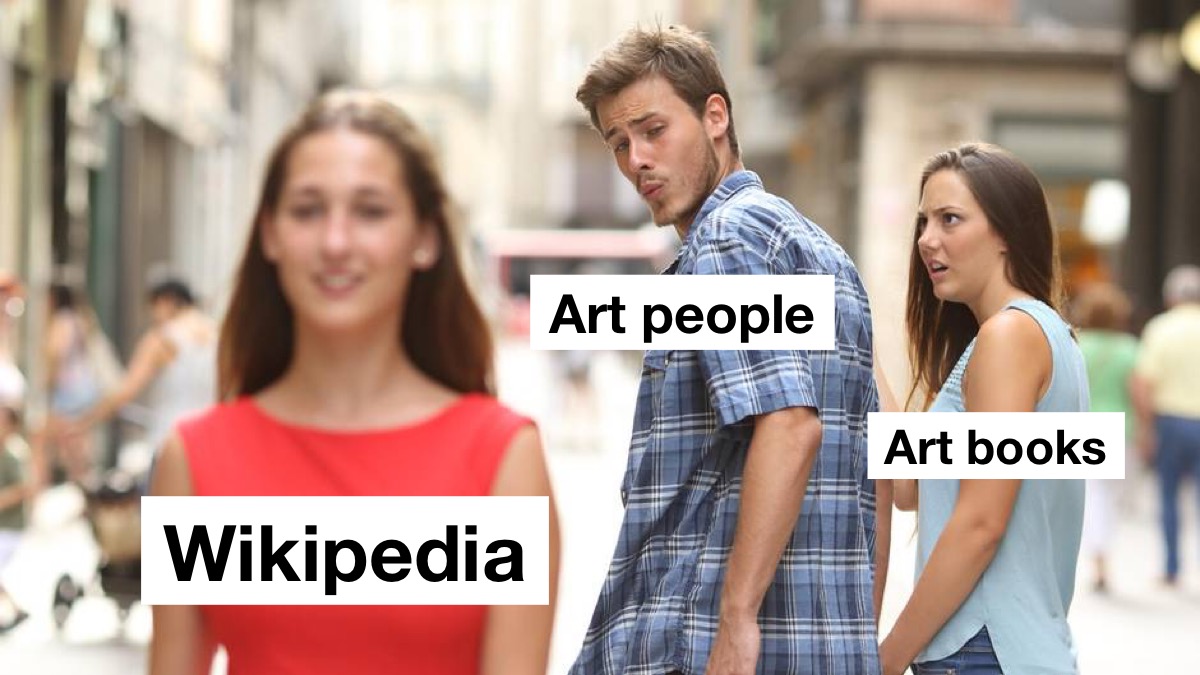
I don’t want to force the language of the art world, but appropriation can be part of creating memes.
It’s nice that talking about memes, these are less important questions. Authorship is not a big issue when it comes to memes and I truly enjoy that. For example, the other day a meme account that I have been following for a while posted a meme that I made a year ago. It is a badge of honor to see that this image has been circulating through the internet. I think these situations should make us question how we perceive physical art as well. This is not me saying that these questions regarding appropriation don’t matter but just not to exaggerate them as much as we do now.
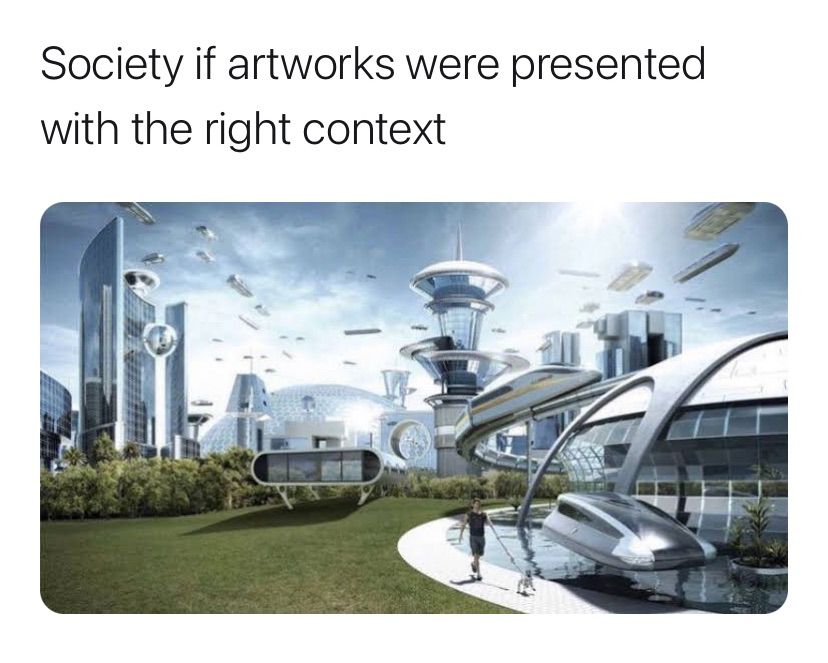
Who is your audience?
According to Instagram’s statistics, my followers are two-thirds female and one-third male. And it’s mostly people under the age of 35. I try not to think too much about this data because it is a bit difficult to appeal to everyone. I do not have a very conscious agenda, it is mostly about creating a collage to expose the audience to new stuff.
Can we say that you are building this page on your own experiences?
I try to keep it semi-fictional, so some of the memes are inspired by my own experiences. But some of them are for example based on notes I took on what people had said, sometimes word by word—especially since I came to Berlin in August. Of course, I wasn’t spying on anyone, it was all my friends talking.
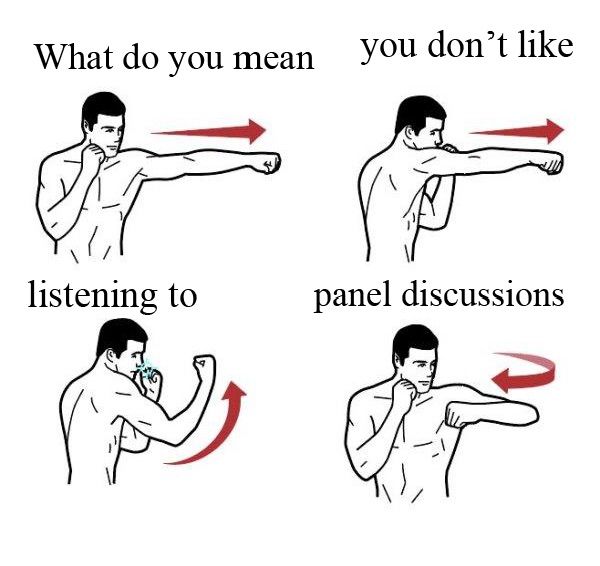
Via your Instagram page, you created a practice in a so-called democratic space (internet), and then as an exhibition, you decided to move your ideas to a gallery space that is part of the institutional system. The whole idea about creating something with a bit of a critical undertone and then making it part of the institution system is a quite important note of the discourse around institutional critique.
I spoke exactly about this in my London lecture. I disagree with the idea of the individual versus the institution. Yes, those two entities exist, but it is always a compromise. What I am trying to do is to keep memes as digital-first artifacts and respect them in how they exist on the internet, in the social setting—while doing supporting projects that introduce memes to new audiences and also help me support myself too. It is a narrow outlook to say “hey, you are doing something digital and now you are doing something physical in a gallery, so you have changed”. It is a compromise, but it is a compromise that in the bottom line helps memes as digital artworks. And my idea is never to replicate a meme. In the exhibition, I tried to deconstruct a meme. Recognizing the memes as digital-first artworks were the main principle that we stuck to while creating the exhibition. I have never made physical art before, so I was panicking regarding what the exhibition could look like. That is when I realized that I was living the meme.
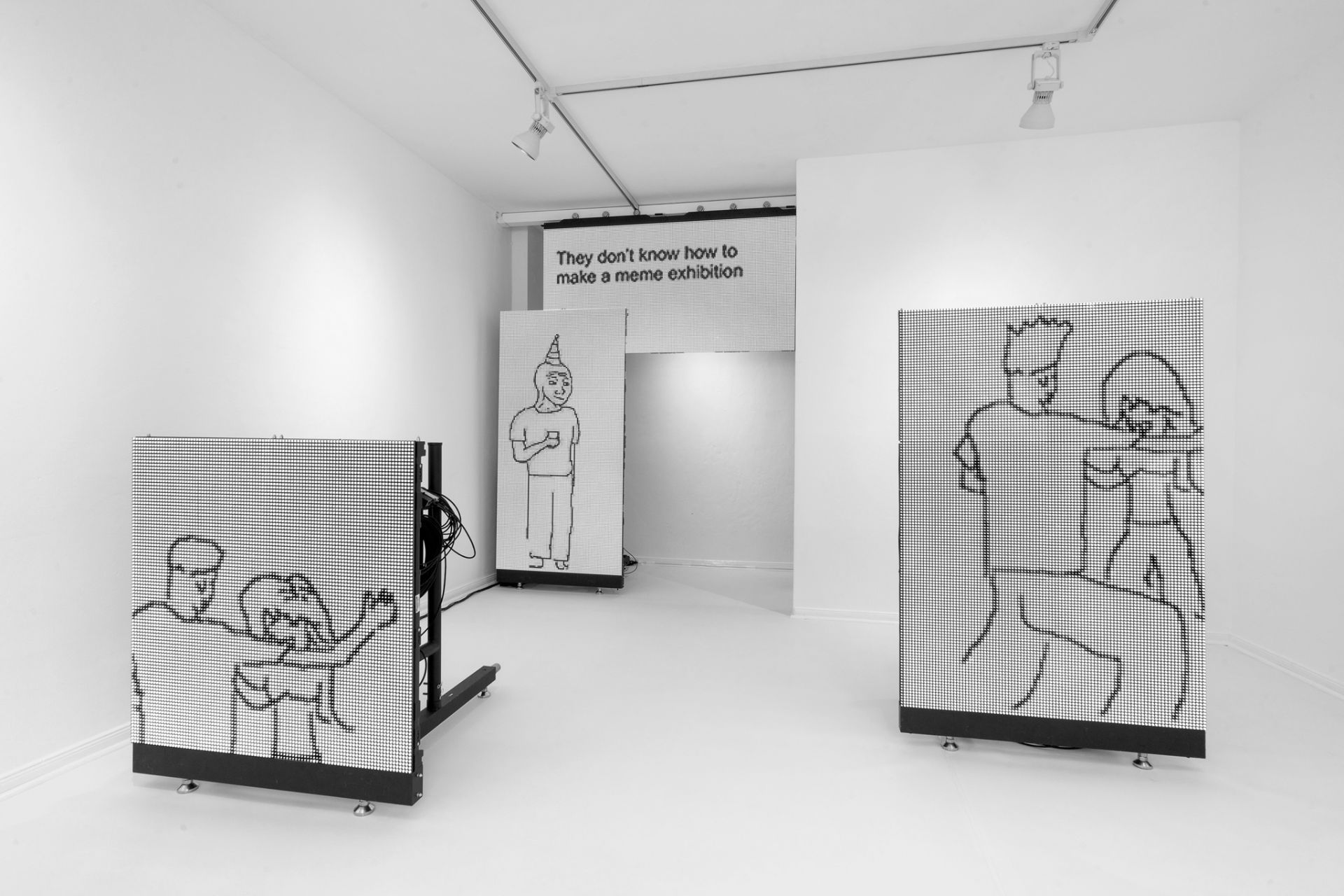
There is this whole story about how I came to this exhibition and it was a meme in itself. This is when I realized that I should embrace that, become more aware of that and make something that respects memes as digital firsts, and also recognize the paradoxes—the silliness of trying to do anything in the art world. That is why there were references in the exhibition to the exhibition itself, for example: “they don’t know how to make a meme exhibition” or “they don’t know how last-minute this exhibition was”.
To me, arguing for a more digital-oriented art world and supporting memes doesn’t mean a total rejection of everything else—it means keeping those other things secondary and using them to support these digital projects.
We are part of the same generation... Did you have elderly visitors at the exhibition? I wonder how an older person could approach this work.
That is a good point and was something that we had to consider while planning the exhibition. For example, the exhibition text explains what Wojak is and what that meme template was. We did it to make the exhibition more accessible to everyone because in a way memes are really accessible to people our age, but this was an opportunity to introduce them to an older audience. Behind the scenes, it was a bit cringe to try to explain a meme preparing this whole show – but it was important to have. On the other hand, we intentionally didn’t try to explain what a meme is because I find it too fundamental to the exhibition.
The other nice thing about the exhibition is that it was open 24/7 because you didn’t have to be in the gallery space to experience the show. It was actually uncomfortable to be inside because those monitors were really bright and it almost felt like you had fallen into a phone. The exhibition was best viewed from the streets.
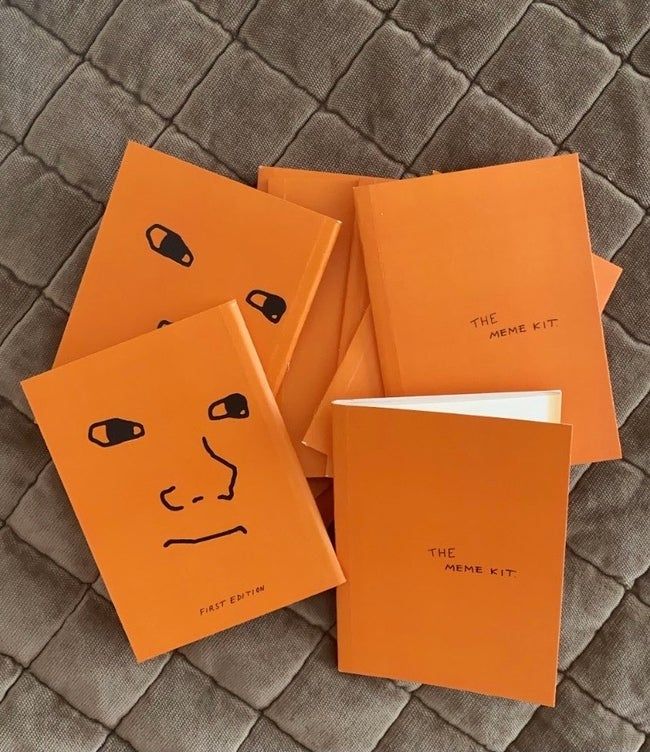
Do you consider memes to be a teachable toolkit for future generations to express ideas, thoughts, and feelings that are more complicated to express via lengthy academic texts?I keep using the word meme in all these projects which is a bit annoying. I think what is important about memes is that they give you a cultural experience you can have directly on your phone. Phones are such a big part of our lives now and we don’t question what we consume via them that much. I think a better study of memes can help you become more technology literate and make you a more active digital citizen. This can have wider benefits to society and that was the motivation behind making The Meme Kit zine as well. The idea was to show people how to interact with memes more critically. The zine had a few memes in it, but it mainly consists of short texts, questions, and diagrams that we created with a group of people (Mira Calix, Naomi Falk, and İdil Galip). It was made to spark some questions in people’s minds and to help them hopefully be more critical the next time they look at memes.